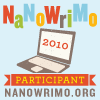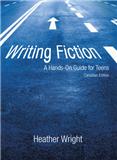 Kristi Holl’s More Writer’s First Aid: Getting the Writing Done is the perfect resource for writers who want to carve a writing career out of a life that seems already full of family, work, and just the “stuff” of living. I printed my PDF review copy, because I read better that way. I used sticky notes to highlight the parts that stood out and that I could mention in this review. I ran out of sticky notes. There were gems in almost every chapter.
Kristi Holl’s More Writer’s First Aid: Getting the Writing Done is the perfect resource for writers who want to carve a writing career out of a life that seems already full of family, work, and just the “stuff” of living. I printed my PDF review copy, because I read better that way. I used sticky notes to highlight the parts that stood out and that I could mention in this review. I ran out of sticky notes. There were gems in almost every chapter.
This is a book that gives you permission to be human—to be confused, frightened, crazy-busy, in pain, and a first class procrastinator. Kristi offers accessible solutions to the challenges of a writer’s life without being trite or condescending. She writes with a voice that has “been there, done that” and has sought solutions in the work of other writers as well as from her own instincts. She shares her solutions and the struggles to find them and make them work, without a smidge of “holier than thou.” She speaks as a fellow traveller and survivor who has worn all of life’s hats, along with that of writer. Reading the book is like having a special writer friend give you a hug and a nod of complete understanding—just when you need it.
This is not a how-to-write guide. There are no tricks for writing great dialogue or creating a compelling story arc. Chapters are grouped under these headings: ENJOYING THE WRITING LIFE—EVERY DAY!, WRITING HABITS THAT HELP YOU, A WRITER’S EMOTIONS, FAMILY MATTERS. She deals with the hard stuff. How to work after a loss, while working the day job and juggling family, when serious illness hits you or a family member. And the practical: how to stop procrastinating, the realities of finding writing time—and equally essential—thinking time, in a life full of demands on your time and attention.
I’ve read a lot of books about writing over the years. (I even wrote one!) Only three have made my annual reread list. Now there are four!
Blogger KRISTI HOLL is the author of 39 books, including MORE WRITER’S FIRST AID.









